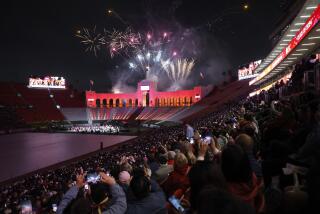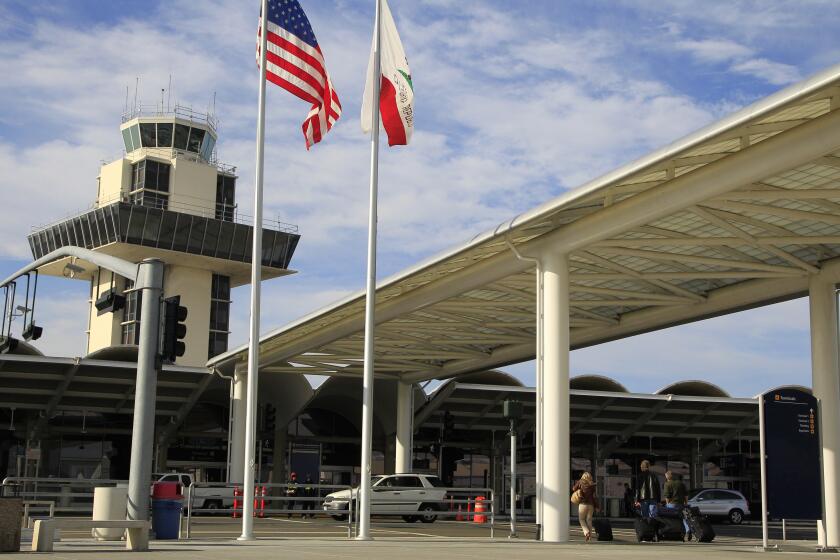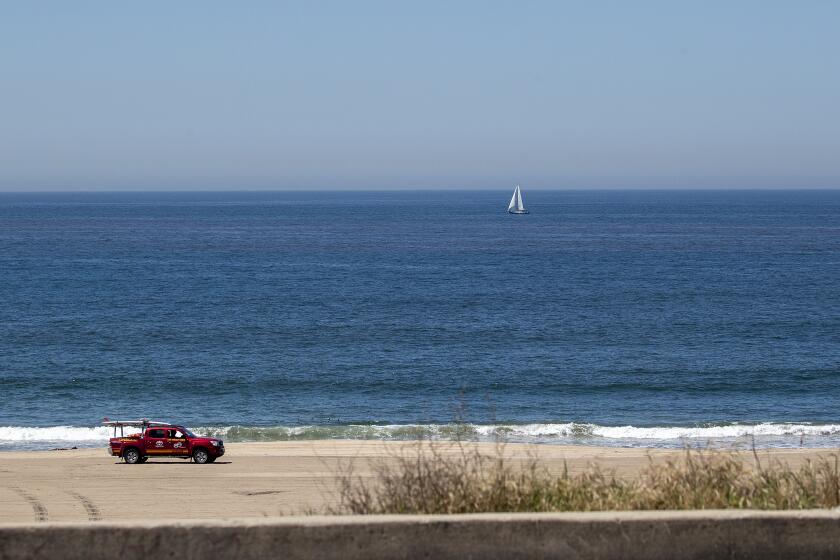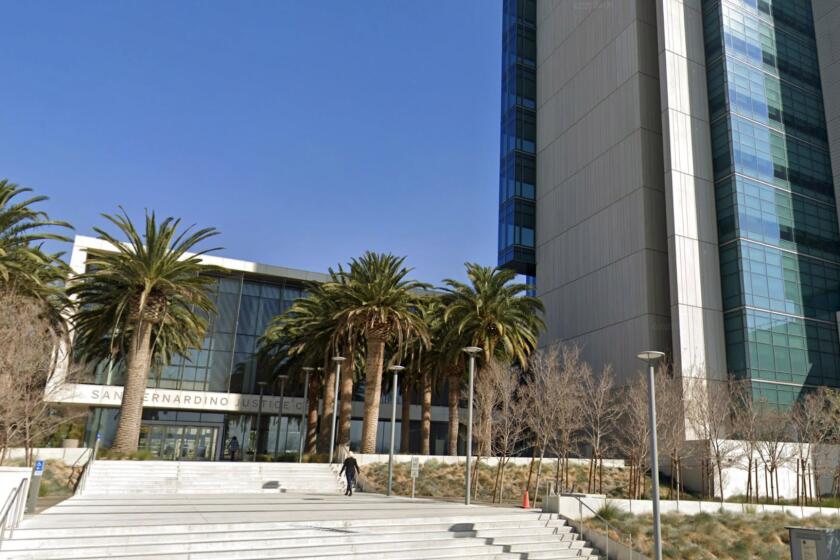Be ‘Responsible,’ Jacobsen Urges Press on Hostages
Former hostage David P. Jacobsen, welcomed by President Reagan at the White House, expressed his “eternal gratitude” Friday to the President but pleaded with the press to “be responsible” and refrain from writing about any possible deals between the Administration and Iran to win the freedom of five hostages still held in Lebanon.
“Simple speculation on your part could cause the death of my dear friend Tom Sutherland or Terry Anderson or Joe Cicippio or any of the other hostages,” Jacobsen told a throng of reporters and cameramen assembled under a steady rain in the White House Rose Garden. “I don’t want that on my conscience, and I don’t think you want it on yours.”
Terry A. Anderson, chief Middle East correspondent for the Associated Press, and Thomas Sutherland, dean of agriculture at the American University of Beirut, were with Jacobsen during much of his captivity. Jacobsen, of Huntington Beach, Calif., was administrator of American University Hospital when he was kidnaped in May, 1985.
Joseph J. Cicippio, acting controller at American University, was kidnaped two months ago.
Flanked by President and Mrs. Reagan, Jacobsen read a statement he had written in longhand on two legal-size pages thanking the Administration and Anglican Church envoy Terry Waite for their efforts to secure his release.
As Jacobsen concluded his prepared remarks, several reporters attempted to question Reagan about reports of shadowy arms shipments to Iran and their connection to the release of Jacobsen and other hostages.
Reagan said there was “no way” he could answer such questions without endangering the lives of the remaining hostages. When the press persisted, asking him about reports that Secretary of State George P. Shultz opposed the White House secret operation, an obviously agitated Jacobsen stepped forward and waved aside further inquiries.
‘Back Off’
“In the name of God,” he pleaded, “will you please just be responsible and back off?”
The emotional exchange capped a day of tense discussion between White House spokesman Larry Speakes and a press corps caught up in a story it began to report once the disclosure of possible arms transfers in exchange for hostages first appeared in a Lebanese magazine last weekend and then was elaborated on by the Speaker of Iran’s Parliament, Hashemi Rafsanjani, in a speech Tuesday in Tehran. The Times learned of the arms shipments in late October but did not publish a story until it became clear that details of the shipments were being reported elsewhere.
The White House has maintained a steely silence from the outset, deflecting all questions related to the hostages with a terse “no comment” and refusing to offer reporters any background guidance on the situation.
“What we have done and what we will do has the goal of gaining the release of the Americans held hostage,” Speakes said. “What we have done and what we will do is right, and is in the best interest of this country.”
Hostages’ Safety
Speakes warned reporters that “whatever you report” could endanger the Administration’s chances of freeing the remaining hostages and perhaps put their lives at risk. “The reporting on this subject, which is uninformed and speculative, is running the danger of affecting the safety of the hostages and being detrimental to the long-term interests of the United States,” he said.
At the same time, Speakes would not divulge any specifics that would lend credence to his assertion that U.S. interests and the lives of the hostages are at stake. “Do you enjoy being hung out to dry?” a skeptical reporter asked Speakes, suggesting that the Administration’s credibility on such matters is shaky in the aftermath of recent reports of a disinformation scheme concerning Libyan leader Moammar Kadafi.
“You don’t know what you’re talking about,” Speakes said sharply. “You ought to keep your eyes and ears open, and you ought to report as responsibly as you can . . . but if somebody tells you something, check it from umpteen different sources, because lives are at stake, and American interest is at stake. I can assure you of that.”
Explosive Situation
Speakes insisted that the situation is so explosive that any information, whether correct or simply speculative, could have dire consequences.
When Jacobsen arrived at nearby Andrews Air Force Base, he singled out Anglican envoy Waite for special praise, calling him “an amazing man who has contacts in Beirut and in the Middle East.”
Jacobsen, who was freed Sunday after 17 months of captivity, said he had been told that “a great many private individuals” worked with Waite to secure his freedom.
“Terry Waite has not told me names or details; he is very careful,” Jacobsen said. “He may have saved my life. And I get upset when the cynics suggest that he is being used by outside governments or is a publicity seeker.”
More to Read
Start your day right
Sign up for Essential California for news, features and recommendations from the L.A. Times and beyond in your inbox six days a week.
You may occasionally receive promotional content from the Los Angeles Times.






